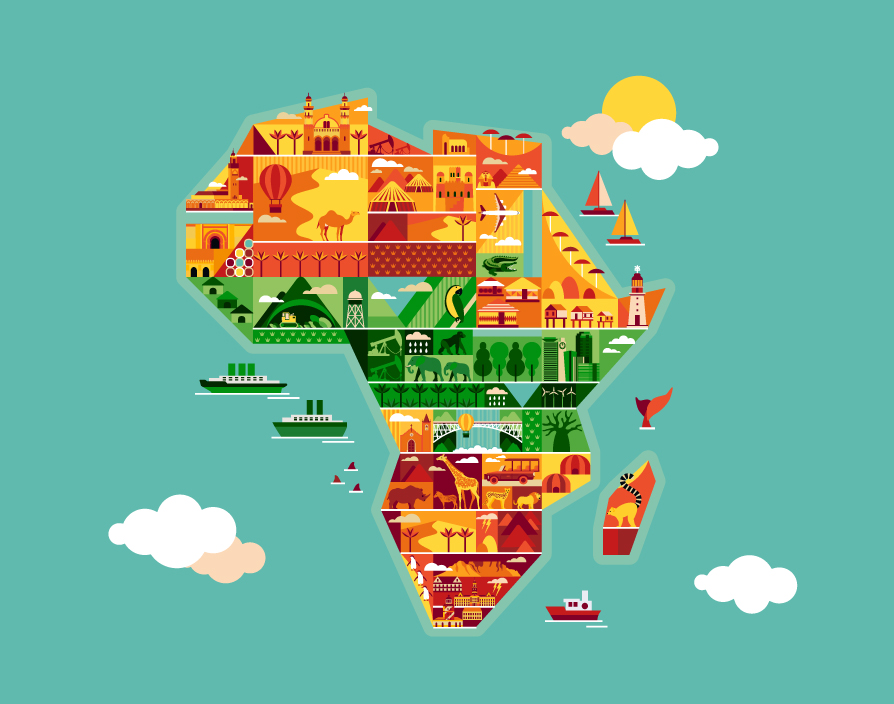There’s never been a better time for entrepreneurs to capitalise on the rapid demographic and social change, urbanisation and technological breakthroughs being experienced in many African countries. But a considered approach is prerequisite for long-term success.
An appreciation that Africa is not just one homogenous market but 54 countries – with 2,000 languages, 521 of which are in Nigeria alone – is critical. And, without doubt, being first to market can deliver significant competitive advantage. But making the most of the opportunities will depend on considered strategies underpinned by depth of understanding and a long-term vision.
A number of indicators demonstrate Africa’s current and imminent rapid growth and so its appeal to western businesses looking to expand internationally. Africa’s current total population of 1.2 billion people is young: south of the Sahara, their average age is below 25 in every country except South Africa. With literacy rates among the young now exceeding 70% everywhere other than in a band of desert countries across the Sahara, it is better educated than ever before.
It is richer, too: the World Bank now estimates 35% of the population lived on less than $1.90 a day in 2015 compared with 56% in 1990. And that’s before factoring in the boost that will follow the Chinese government’s plan to invest $60bn in Africa on poverty reduction initiatives, industrialisation, infrastructure and health over the next three years.
Looking ahead, the continent will account for some 50% of the world’s population growth between now and 2050, PricewaterhouseCoopers predicts. Africa’s middle classes are already growing fast, with one in three people now considered to be living above the poverty line though not among the wealthy. Meanwhile, a staggering 1.1 billion – some 42% of the continent’s population – is expected to achieve middle class status by 2060.
Of Africa’s 54 countries, South Africa is still considered the continent’s first powerhouse and a gateway to many other African countries. But with 173.6 million citizens driving up its GDP by a reported 200% in just ten years, Nigeria is considered Africa’s new power player.
Rapid demographic and social change is being accompanied by rapid urbanisation. Meanwhile, in a continent boasting the highest broadband growth rate in the world and, in many countries, 4G mobile infrastructure, technological breakthroughs are widespread. Already, mobile phones have transformed commerce across the African continent. Now smartphones and feature phones – halfway between a brick and a smartphone – are taking hold.
So how best to make sense of all of this from a business development perspective? From our experience, the first step is to take into account both cultural considerations and potential pitfalls. Linguistic, ethnic and religious diversity make cultural changes across the continent extreme. Demonstrating a passion and interest in local culture and its nuances is critical – not least to generate trust – but building loyalty takes time.
Respect is an important pillar of African social infrastructure and needs to play a central role in business relationship building too. Patience and flexibility are critical. Much happens at a slower pace than elsewhere in many other markets and situations can change quickly with decisions revoked. And with the daily hardships – both social and physical – faced by many, empathy is key.
Corruption is still an issue in Africa. Legislation that can change rapidly; bureaucratic bottlenecks and patchy transport and power supply infrastructure are problems that cannot be overlooked. But, thanks to internet connectivity, governance and transparency are improving.
Without doubt, a backdrop of improving infrastructure, increasing transparent governance and rapidly improving education promises many opportunities. And fast-growing economies are just the start of it. Huge numbers of young people and rapidly-expanding middle classes are creating a significant appetite for brands while fuelling fast adoption of technology, particularly mobile. In Nigeria especially, the lack of functioning e-commerce businesses is in itself a massive opportunity.
How, then, to ensure you get your business expansion strategy for Africa right? With little capital required to set up in business, cheap labour costs and less taxation, start-up costs in Africa won’t break the bank. Cheaper resources, however, don’t necessarily equal better margins.
The first step should be to find a local partner willing and able to facilitate local introductions and work with you to help navigate local customers, culture and relationships. As important is a reputable and knowledgeable accountant and lawyer – preferably one that is part of a larger western organisation – to help with complex topics such as repatriation of profits.
There are also many commercially favourable opportunities for startups across Africa but you need expert advice. For instance, in Nigeria, the ‘pioneer status’ incentive regulation grants companies carrying out certain approved activities a tax holiday period from companies income tax of up to five years. Such an incentive could help to reduce the risk to investors of the aforementioned profit repatriation.
So what else is necessary to succeed? Mindset is critical. Start small and be flexible: your chosen model won’t automatically be right just because it works in Europe or the US. But, above all, don’t try to run the business from elsewhere by remote control. As with launching into any new territory, you have to be present to gather all-important first-hand insight. You need to be both culturally intelligent and culturally relevant – arguably, for any business wanting to establish an African foothold, the two most important determiners of success. ![]()
This article comes courtesy of House of Kaizen, the global end-to-end marketing agency.
Share via:


















































